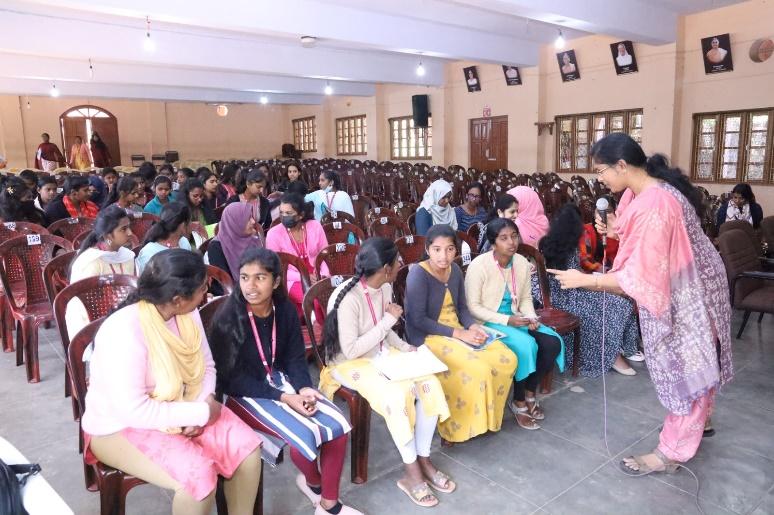- Home
- Institution
- Academics
- Programmes
- Facilities
- Campus
- Collaboration
- Research & Publications
- IQAC
- Media
- Contact Us
- ACAS Signature
The Institute for Flipped Learning (IFL) at Al Shifa College stands as a pioneering initiative dedicated to the widespread adoption of the Flipped Classroom (FC) method. Established three years ago, the IFL has successfully embedded Flipped Learning practices within the college, transforming traditional teaching methods into dynamic, student-centric experiences.
The IFL was founded in response to the evolving educational landscape, recognizing the need to shift from conventional teaching approaches to more engaging and skill-oriented methodologies. Al Shifa College’s commitment to staying at the forefront of educational innovation led to the establishment of the IFL, aiming to bridge the gap between traditional teaching and the demands of a modern, skills-focused education..
The Flipped Classroom method, a hallmark practice of Al Shifa College, has been effectively implemented within its classrooms for the past three years. This methodology redefines the teacher-student dynamic by bringing students to the center of their learning journey. Teachers at the college have successfully embraced this approach, stepping back to allow students to engage with materials independently before class, thus fostering a more interactive and collaborative learning environment during face-to-face sessions.
The success of Flipped Learning at Al Shifa College is substantiated by three years of consistent implementation and positive feedback from students. Through surveys and testimonials, students have expressed the effectiveness of the Flipped Classroom approach in enhancing their understanding, engagement, and overall learning experience.
The journey has not been without challenges. The digital gap poses a hurdle, requiring creative solutions to ensure all students have equal access to online materials. Additionally, the challenge of managing large classrooms necessitates strategic planning to maintain the effectiveness of Flipped Learning practices in diverse educational settings.
Saritha. K, Head, Dept. of English
Rajashree. V, Assistant Professor of Commerce
Through Memoranda of Understanding (MoU) partnerships, the IFL has extended its reach to other colleges, delivering Flipped Classes and responding to requests for sessions aimed at training faculty. This collaborative approach helps partner institutions equip their faculty with the innovative Flipped Learning methodology.
In recognition of outstanding contributions, the IFL acknowledges the “Flipper of the Month.” This recognition is awarded to faculty members who have demonstrated excellence by offering the maximum number of Flipped Classes in a given month. The awardees receive a certificate, fostering a culture of appreciation and motivation among the teaching community.
Faculty members, as part of the Flipped Learning initiative, maintain individualized Faculty Websites. These platforms serve as centralized hubs where students can access curated educational materials. This digital resource enhances accessibility, allowing students to engage with course content at their own pace and reinforces the commitment to facilitating effective and flexible learning experiences.
The IFL actively plays a pivotal role in curating and promoting scholarly work related to Flipped Classrooms. Collaborating with the Publication Wing, the IFL encourages faculty members to contribute articles and books on Flipped Learning methodologies. This collaborative effort not only enriches the academic discourse on innovative teaching practices but also establishes the IFL as a hub for thought leadership in the field of Flipped Classrooms. Through this initiative, the IFL strives to contribute valuable insights to the broader educational community, fostering a culture of research and knowledge dissemination.
The Department of Commerce implemented flipped classes at Majilis College, Valancherry, while the Department of English introduced the classroom mode at Ambedkar College of Arts and Science, Wandoor, and Providence College for Women, Coonoor.
